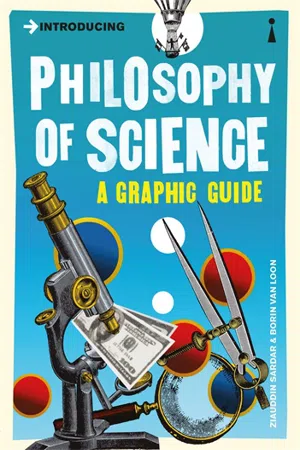
- 176 pages
- English
- ePUB (mobile friendly)
- Available on iOS & Android
eBook - ePub
About this book
What do scientists actually do? Is science "value-free"? How has science evolved through history? Where is science leading us? "Introducing Philosophy of Science" is a clear and incisively illustrated map of the big questions underpinning science. It is essential reading for students, the general public, and even scientists themselves.
Frequently asked questions
Yes, you can cancel anytime from the Subscription tab in your account settings on the Perlego website. Your subscription will stay active until the end of your current billing period. Learn how to cancel your subscription.
At the moment all of our mobile-responsive ePub books are available to download via the app. Most of our PDFs are also available to download and we're working on making the final remaining ones downloadable now. Learn more here.
Perlego offers two plans: Essential and Complete
- Essential is ideal for learners and professionals who enjoy exploring a wide range of subjects. Access the Essential Library with 800,000+ trusted titles and best-sellers across business, personal growth, and the humanities. Includes unlimited reading time and Standard Read Aloud voice.
- Complete: Perfect for advanced learners and researchers needing full, unrestricted access. Unlock 1.4M+ books across hundreds of subjects, including academic and specialized titles. The Complete Plan also includes advanced features like Premium Read Aloud and Research Assistant.
We are an online textbook subscription service, where you can get access to an entire online library for less than the price of a single book per month. With over 1 million books across 1000+ topics, we’ve got you covered! Learn more here.
Look out for the read-aloud symbol on your next book to see if you can listen to it. The read-aloud tool reads text aloud for you, highlighting the text as it is being read. You can pause it, speed it up and slow it down. Learn more here.
Yes! You can use the Perlego app on both iOS or Android devices to read anytime, anywhere — even offline. Perfect for commutes or when you’re on the go.
Please note we cannot support devices running on iOS 13 and Android 7 or earlier. Learn more about using the app.
Please note we cannot support devices running on iOS 13 and Android 7 or earlier. Learn more about using the app.
Yes, you can access Introducing Philosophy of Science by Ziauddin Sardar,Borin Van Loon in PDF and/or ePUB format, as well as other popular books in Philosophy & Philosophy History & Theory. We have over one million books available in our catalogue for you to explore.
Information
Topic
PhilosophySubtopic
Philosophy History & TheoryThe Nature of the Beast

Our world is shaped and driven by science. Almost every benefit of modern life – from antibiotics to computers, our understanding of human evolution to our ability to land a satellite on Saturn – is a product of science. For most people, progress is simply another term for advances in scientific knowledge and benefits derived from new discoveries of science.
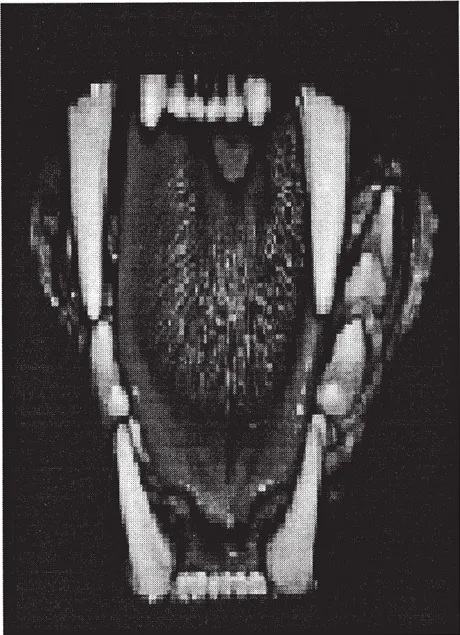
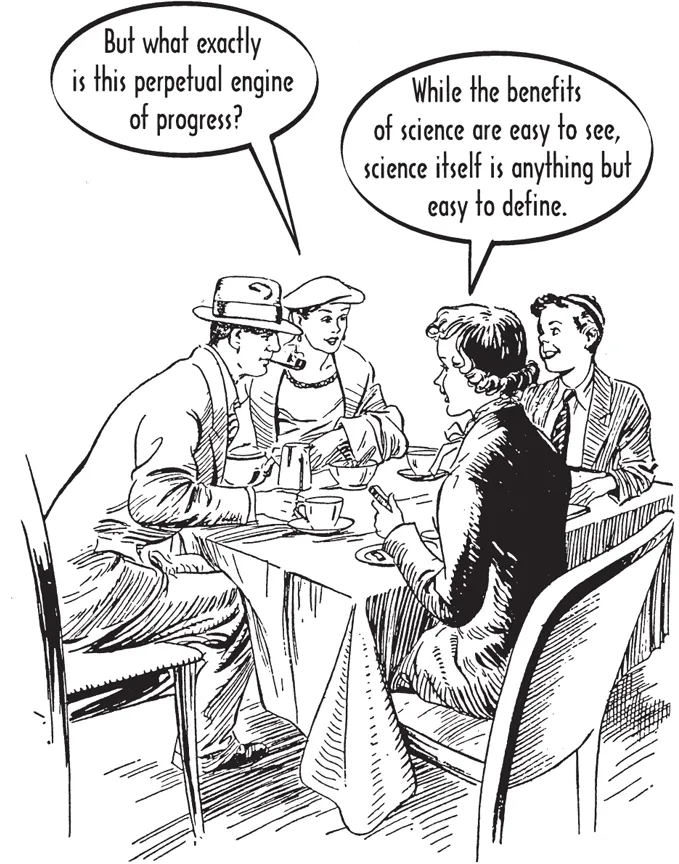
But what exactly is this perpetual engine of progress? While the benefits of science are easy to see, science itself is anything but easy to define.
Is Science “Absolute Objectivity”?

Until quite recently, Western tradition saw science as the quest for objective knowledge of nature and reality. Scientists were regarded as quasi-religious supermen, heroically battling against all odds to discover the truth.

And the truths they wrestled out of nature were said to be absolute … … objective, value-free and universal.
As one sociologist in the 1940s described it, science reflects the character of nature itself: “The stars have no sentiments, the atoms no anxieties which have to be taken into account. Observation is objective with little effort on the part of the scientist to make it so.”

Or, as J.D. Bernal (1901–71), the radical historian of science, put it …
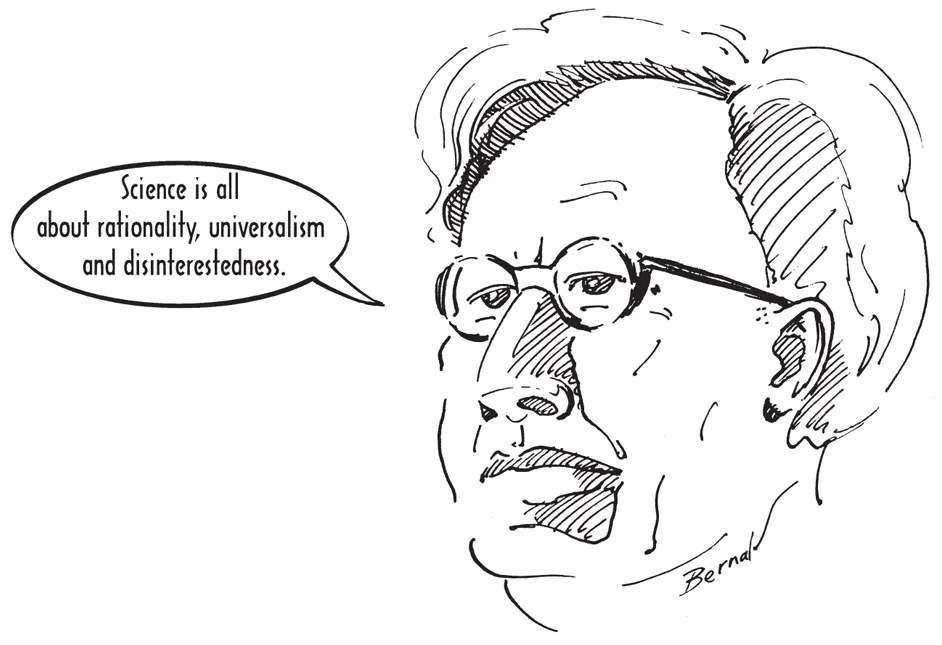
Science is all about rationality, universalism and disinterestedness.
Do We Trust Scientists?
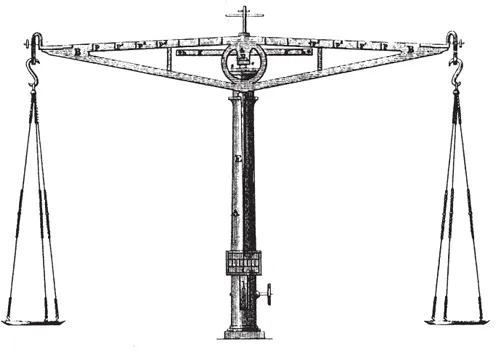
But this picture of truth-loving and truth-seeking scientists working for the benefit of humanity is rather at odds with the public conception of science and scientists. Most people are not “anti-science”. We recognize the potential that science has for making our lives healthier and easier.
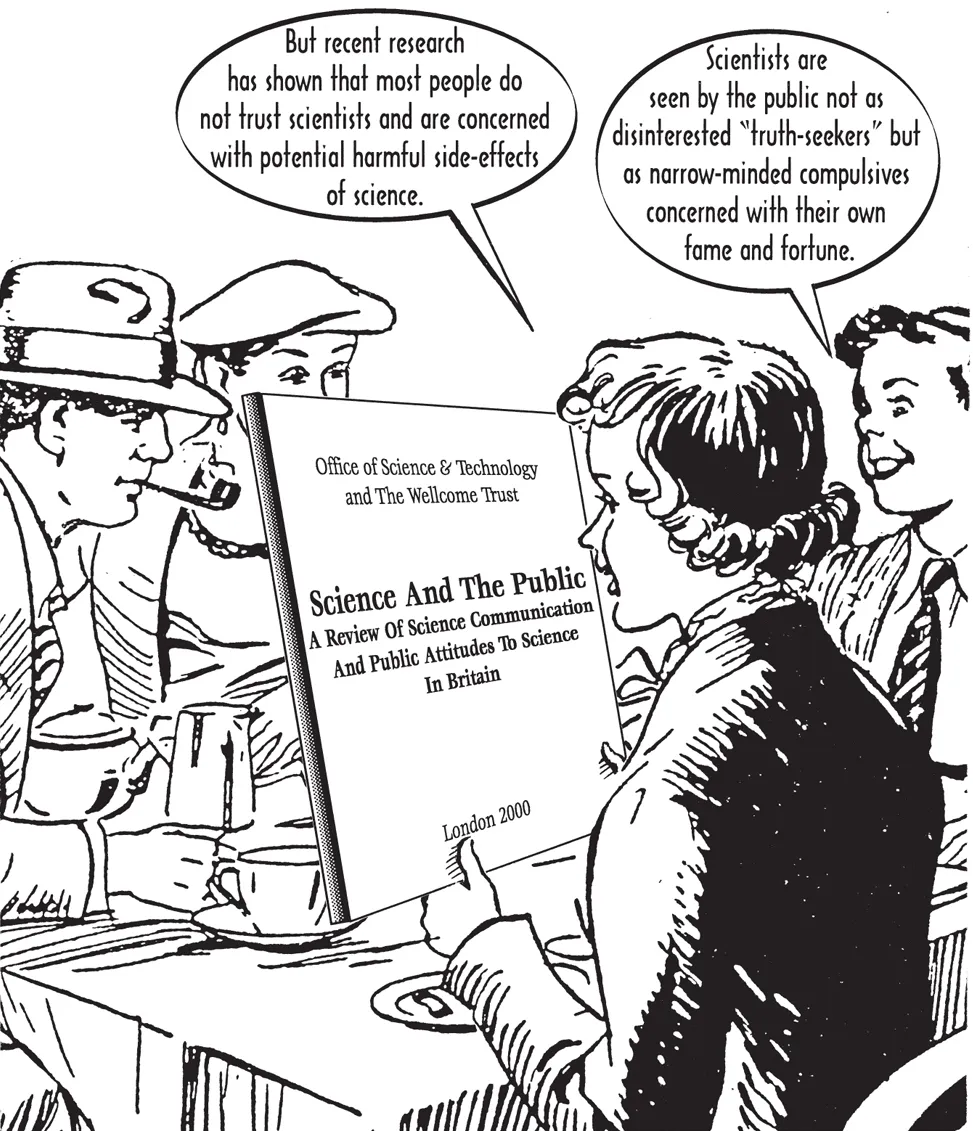
But recent research has shown that most people do not trust scientists and are concerned with potential harmful side-effects of science. Scientists are seen by the public not as disinterested “truth-seekers” but as narrow-minded compulsives concerned with their own fame and fortune.
The view of the scientists we find in popular literature and film is even more scathing.
Dr Henry Frankenstein of Mary Shelley’s Frankenstein (1818) is not the monster, but …
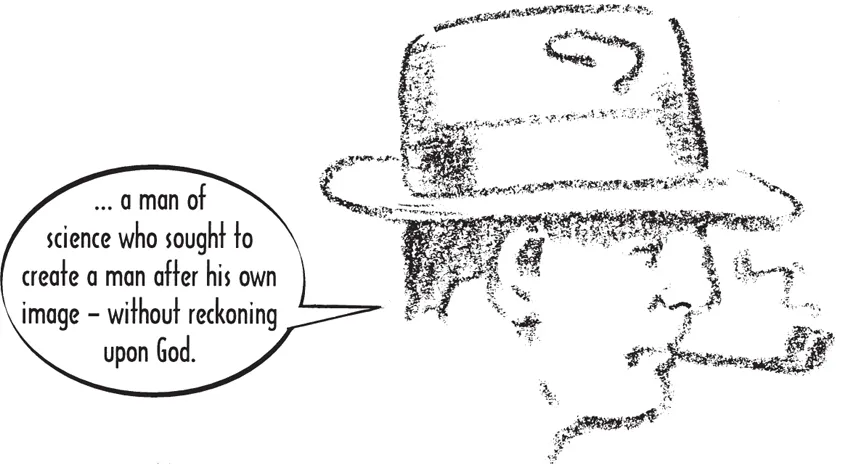
… a man of science who sought to create a man after his own image – without reckoning upon Gad.
In Robert Louis Stevenson’s Dr Jekyll and Mr Hyde (1886), Jekyll is a restless young scientist who discovers a concoction that turns him into his alter ego …
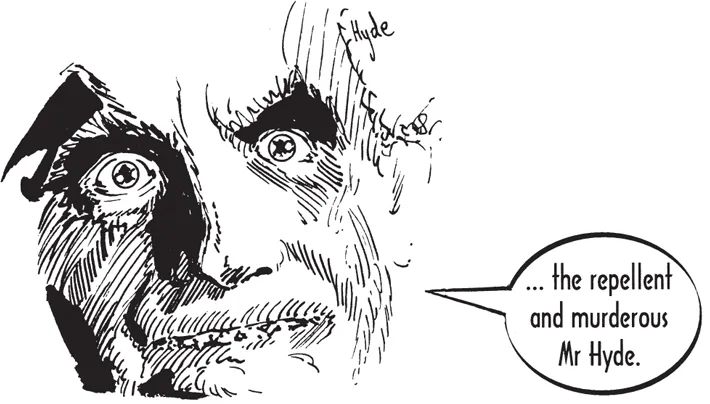
… the repellent and murderous and murderous Mr Hyde.
In H.G. Wells’ The Island of Doctor Moreau (1896), a scientist develops mutant life-forms that live in pain and misery …

… we violently revolt against out creator.
In the classic film Dr Strangelove (1964), the title character, played by Peter Sellers, is a paraplegic Nazi scientist …
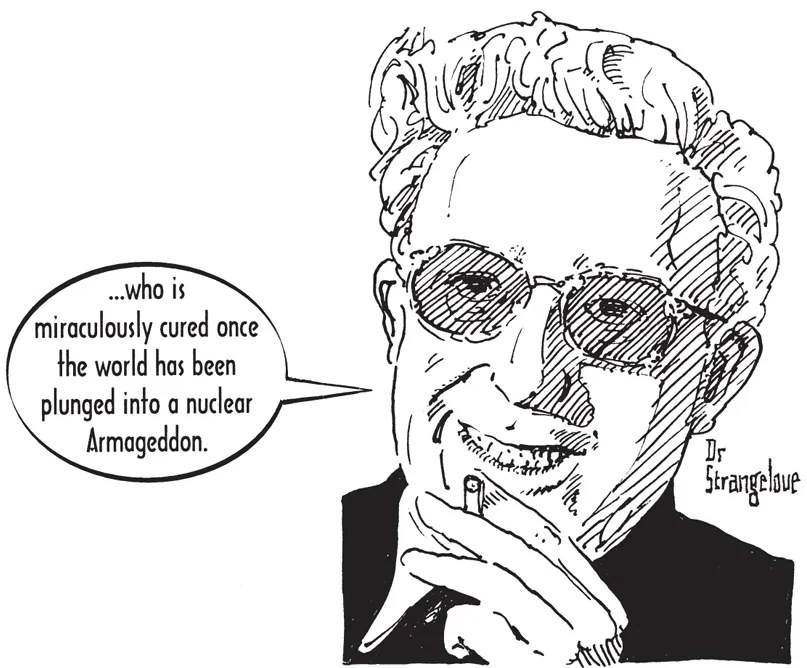
… who is miraculously cured once the world has been plunged into a nuclear Armageddon.
The Boys from Brazil (1978) shows scientists as evil Nazis hell-bent on recreating a race of Hitlers.

In Batman and Robin (1997), both villains are scientists:

…the evil Mr Freeze… …and the misguided Miss Poison Ivy.
Why do the popular perceptions of science and scientists differ so radically from the scientists’ own self-image as brilliant pioneers deserving of admiration, funding and blind trust? Perhaps because, apart from bringing benefits, science has also posed serious threats to humanity.
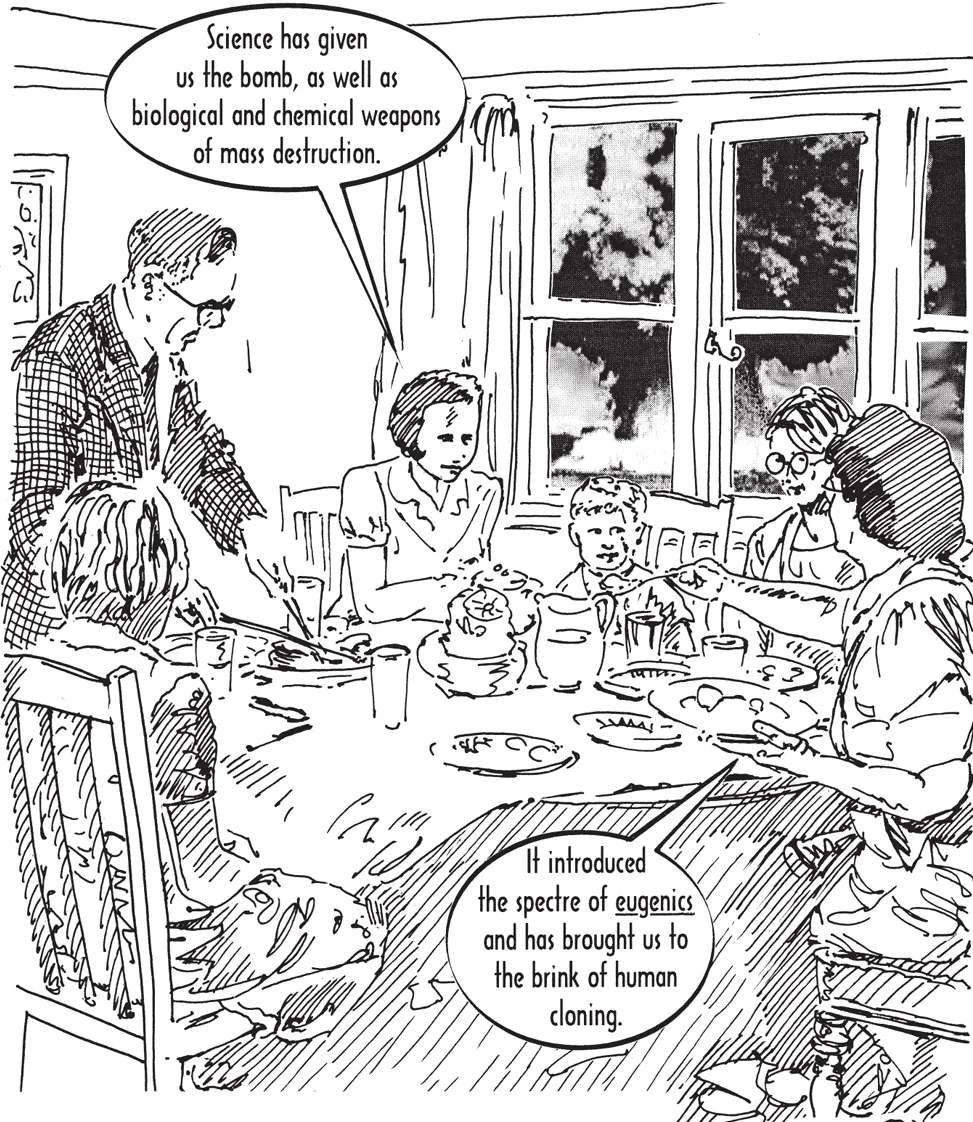
Science has given us the bomb, as well as biological and chemical weapons of mass destruction. It introduced the spectre of eugenics and has brought us to the brink of human cloning.
The by-products of science, such as nuclear waste and chemical pollution, are destroying ecosystems on local, regional and global scales. So, science brings us benefits as well as costs. Perhaps it was in an effort to present a more deflated image of science that the Nobel Prize physicist Lord Rutherford (1871–1937) said:
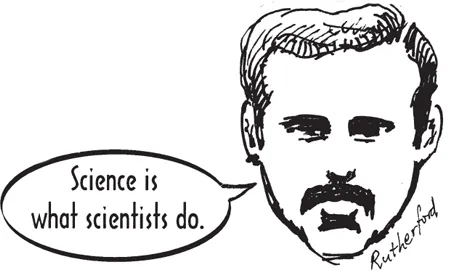
Science is what scientists do.
What Do Scientists Actually Do?

Here are some examples of the negative things that scientists actually do, as reported by the media.
The Indep...
Table of contents
- Cover
- Title Page
- Copyright
- Contents
- The Nature of the Beast
- Further Reading
- About the Author and Artist
- Acknowledgements
- Index